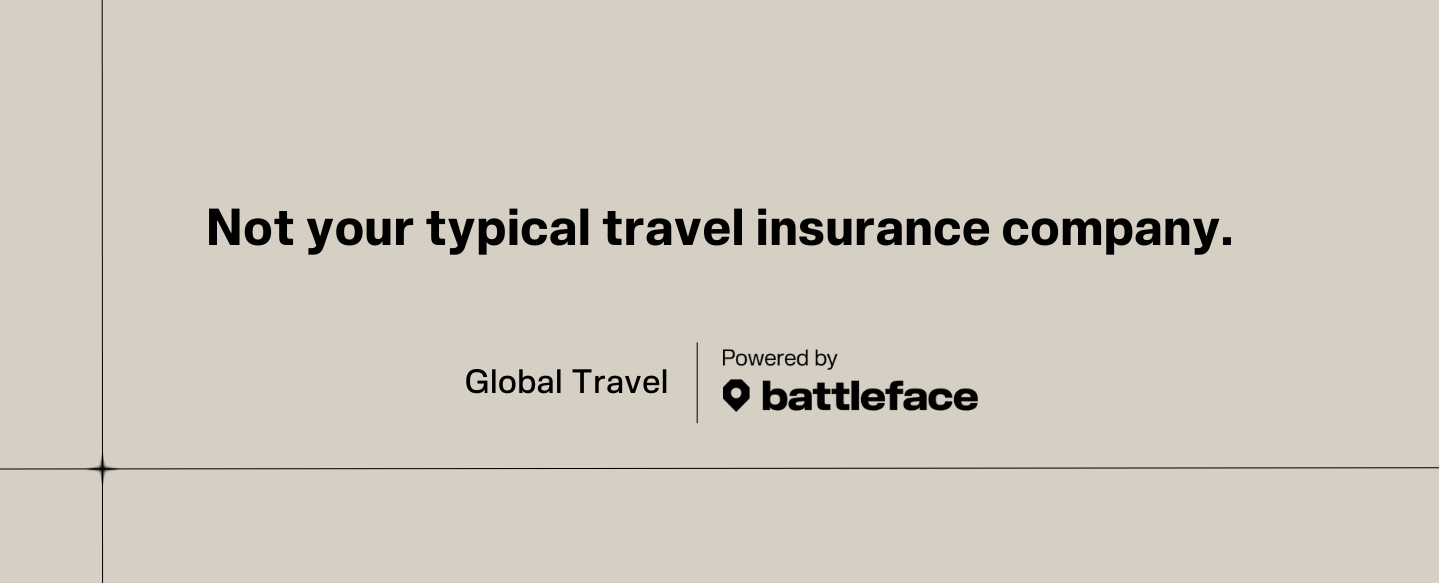Leading the Way to Build the Future of Travel Insurance
We identified critical problems and have built (and are building) better solutions
For years, travel insurance had stagnated. An industry that had long been categorized as tech laggards was in need of a significant overhaul. Policy confusion ran unabated, and a market flooded with one-size-fits-all plans that didn’t match the reality of modern travel.
Even worse, the travel insurance process, in general, was frustrating for customers. From buying a plan to filing a claim, travelers often found themselves stuck in the middle, dealing with different companies at each step. None of whom seemed to communicate or coordinate with each other.
We saw this gap and knew there was a better way forward.
Building battleface: The Way Forward to Fix a Broken System
We originally launched in January 2018, built by a team with decades of experience not just in travel insurance, but also emergency medical services, claims handling, and travel technology. The mission was simple: create relevant travel insurance (products, processes, and services) that works for all the unique ways travelers see the world. Why did we do this? Because a business traveler flying from New York to London shouldn't be offered the same insurance plan as someone trekking through the Amazon Rainforest. The coverage wasn't designed for the trip itself, causing a deterioration in value making plans more and more un-personalized and irrelevant.
- sasha gainullin, ceo
Technology and Underwriting: We Built an Innovative Tech Platform Allowing Insurers to Price Risk in Real-Time
Traveler's Home Country
Destinations & Duration
Travelers' Age
Planned Activities
With these key factors and innovation at the intersection of technology and underwriting, coverage became tailored to the actual PERSON and THEIR trip, solving one of the industry’s largest issues.
What's your unique story?
We'd love to hear your story and how we can work together to continue building a better future for travel insurance.
How battleface Grew During the COVID-19 Global Pandemic
Two years in to starting battleface, the travel and travel insurance industries were shaken to its core when the world shutdown in March of 2020.
In 2020 and 2021, travel was at all-time lows. But battleface was able to gain marketshare during this time as one of the few travel insurers able to adapt to continue offering coverage.
How? Many insurers either stopped offering coverage or inflated premiums and priced themselves out of the market. The battleface technology matured in those two years leading up to COVID-19 with enhanced flexibility to allow for real-time pricing adjustments based on pandemic exposure and destination risk.
Suddenly, we found ourselves in front of millions of travelers searching for coverage.
With this surge in demand, it enabled accelerated growth and led us to:
- Rapid global expansion across the UK, EU, USA, Canada, and Australia/New Zealand
- Investment from top venture capital firms
- A shift from direct-to-consumer to a partner-driven model in 2022
Growth Enabled a New Era: Partner-Driven Embedded Insurance
As we shifted our strategy towards a partner distribution model, we recognized that one-size-fits-all travel insurance wasn’t just a problem facing travelers: it was also a challenge for travel brands, financial institutions, and (other) insurance providers.
The main issue plaguing our partners was diminishing [travel insurance] attachment rates. While there could be a myriad of factors impacting this, the reality was, travel had fully rebounded and there was no other explanation for the attachment decrease other than the product.
We had the opportunity to put our solutions to the test with partners to offer plans within their environment fit to their travelers’ needs. We started by doing one simple but company altering thing.
We Unbundled Traditional Travel Insurance Benefits Allowing Partners Unparalleled Product Customization
Customize + Embed
Hyper-relevant products placed directly in the booking path to optimize attachment.
Build + Modify
Built based on specific audience segment criteria to maximize ancillary revenue.
A/B Testing
Easily determine which benefits travelers value most based on buying behavior.
Lifetime Value
Product relevance combined with exceptional post-purchase CX extends LTV.
Through this approach, partners could finally provide tailored, relevant insurance, leading to better customer experiences and increased revenue.
Curious to learn more? Here is a sample of a pitch deck that helped us win two major RFPs in 2024.








